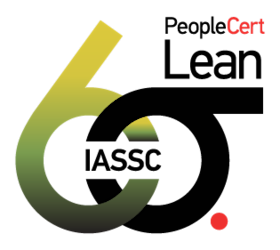The IASSC Certified Lean Six Sigma Green Belt™ (ICGB™) is for professionals who have a solid working knowledge of the core elements of Lean Six Sigma Methodology and are leading improvement projects or serve as part of a team delivering more complex improvement projects and wanting a higher level of understanding of Lean Six Sigma.
The Lean Six Sigma (LSS) certifications are designed to support organisations in their mission to improve customer satisfaction, boost performance levels, and shorten the time-to-market. Professionals and consultants will benefit from LSS's potential for cross-industry application and increased salary.
A Lean Six Sigma Green Belt holder possesses a comprehensive understanding of all aspects of the Lean Six Sigma Method and is competent in the phases of Define, Measure, Analyse, Improve and Control (DMAIC) as defined by the IASSC Lean Six Sigma Body of Knowledge™.
Holding a Lean Six Sigma Green Belt shows an understanding of how to implement, perform, interpret, and apply Lean Six Sigma with a high level of proficiency.
Examination
This course pricing includes a voucher for the IASSC Certified Lean Six Sigma Green Belt Exam, which is an online proctored exam through PeopleCert.
The exam is:
Three hours (180 minutes)
100 questions (multiple-choice and true/false)
Pass mark is 70 out of 100 (i.e. 70%)
Closed book
After passing the exam, each student’s certificate will be made available to them via PeopleCert.
It is highly recommended that you spend some time each evening of this course reviewing and consolidating what you’ve learned, to be well prepared for the exam.

